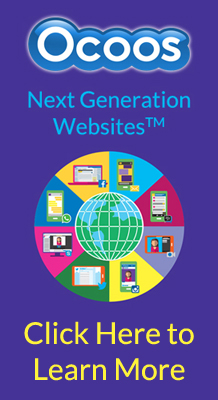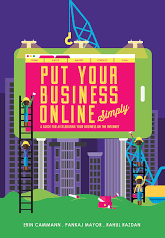Shopify Review: Identifying Shopify's Strengths and Weaknesses

Shopify is a do-it-yourself (DIY) website development company that has positioned itself as an ecommerce provider for Facebook pages. Shopify has created a web editor that allows business owners to design a webpage without having to know or worry about HTML coding. Shopify offers an array of customizable templates and has an integrated storefront for products. With a 14-day free trial, Shopify offers a solid product for creating homepages with product sales, and it can be a good complement to selling products on Amazon or eBay.
Like Shopify, Ocoos is a website-building platform that helps business owners solve common sales and marketing problems. Ocoos allows business owners to create websites that integrate sales solutions and other core business offerings in a simple-to-manage platform. A basic website can be created in as little as 20 minutes, and be optimized for use across devices and browsers. Ocoos even has a concierge service that will build the website for the customer.
Shopify is an attractive solution for building an initial homepage, or storefront, for your business, but beyond its ecommerce solution, its functionality is sparse. Ocoos, on the other hand, offers more complex business interactions, particularly for service providers, through it's platform -- perfect for busy small business owners.
Here's what a more detailed analysis of Shopify and Ocoos looks like:
To evaluate website building products that integrate sales solutions, like Shopify and Ocoos, you have to understand how a website is supposed to “work.”
A website should succeed at these four things:
Communicate basic business information -- like a company's services, location and contact information, and business hours, as well as relevant background information -- and be visible to search engines, such as Google.
Implement customer engagement: ecommerce tools for selling products and services, appointment schedulers, forms to capture customer information, analytics tools, and visible partner connections to build trust.
Front-end of business operations: The site should offer a central place for client contact information and sales information as well as a front-end database to drive future marketing.
Services, support and cost: the site should integrate additional business services, as well as necessary support at a fair price.
Homepage Development
Shopify: Shopify's primary focus is homepage development, and it offers a variety of good templates for business owners to use. Shopify's customers can personalize their website to a large degree, but this could also create issues down the road for the business owner.
It's possible their website won't have been properly optimized for use on mobile devices or for search engines like Google, or that their webpage has unintentionally created a negative experience for customers.
Ocoos: Ocoos lets business owners create a website using a core design that Ocoos has developed, and which already takes user interactions and optimization into consideration. Tools like maps, calendars, and newsletters -- which drive website traffic -- are supported. Ocoos even has a B2B recommendation engine that gives small business owners the chance to work together, crowdsourcing marketing efforts and building trust.
Customer Engagement
Shopify: Ecommerce solutions, plus PayPal access, are part of the Shopify experience, as is a built-in discount manager for executing special promotions. Online appointment schedulers and built-in message are only available through third party applications (apps). However, complex transaction abilities and document functionalities are not available.
Ocoos: Ocoos offers ecommerce support, as well as a built-in merchant account capability and Square and PayPal access. It's not a problem to integrate complex transactions, and the system even allows for customers to pay initial deposits, and request a quote, paying when a job is finished.
A discount manager helps you create discount codes, and there is also an online appointment scheduler, which can book everything from appointments to classes and can be synced to personal calendars, be limited to a certain capacity, and published to an online calendar.
Integrating and tracking customer interactions outside of email via a customer relationship management system (CRM) is possible. Business owners who require PDF documentation capability, receipt creation, and the ability to publish complex information will find it with Ocoos.
Business Operations
Shopify: Shopify provides support for hosting, CRM, and sales tracking, but does not offer flexible security.
Ocoos: Ocoos also provides hosting, CRM, and sales tracking support. However, unlike Shopify, Ocoos also offers flexible security which allows business owners to give marketing and analysis capability to team members without giving up sensitive financial data.
Support and Cost
Shopify: Support is offered via telephone and online forums. Shopify offers a basic, free version of its platform, but most small business owners would need the additional options offered in the $29 per month option.
Ocoos: Telephone and online support are available to Ocoos customers. Ocoos offers its services at $25 per month. Additionally, Ocoos offers a helpful concierge service which will build your website for you, with the customizations you require. This service comes at an additional cost, based on the level of customization, and generally involves a higher maintenance fee.


